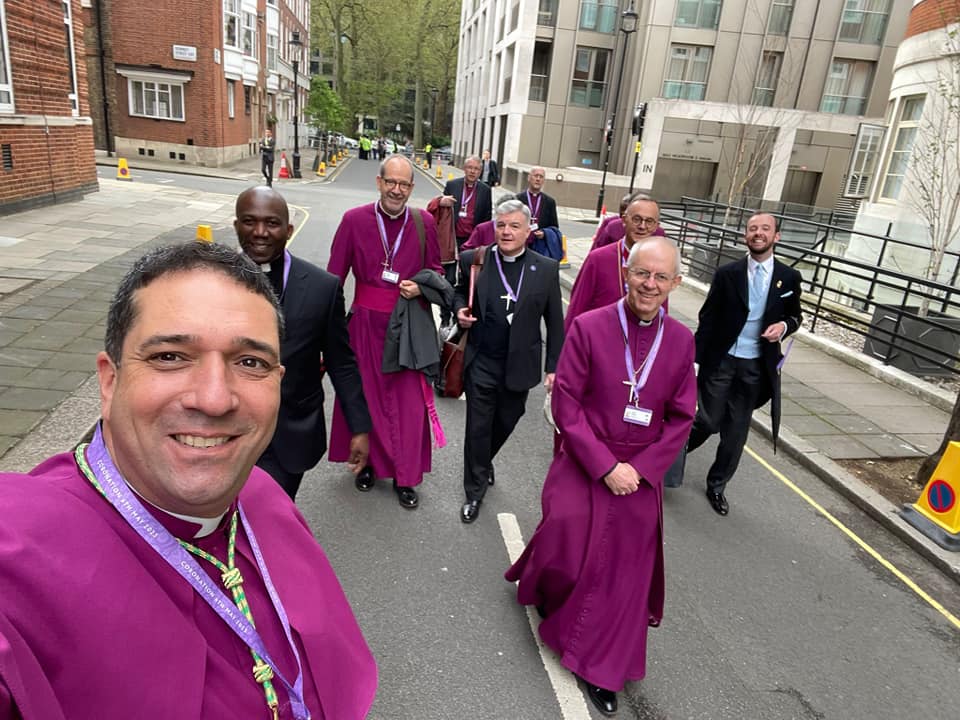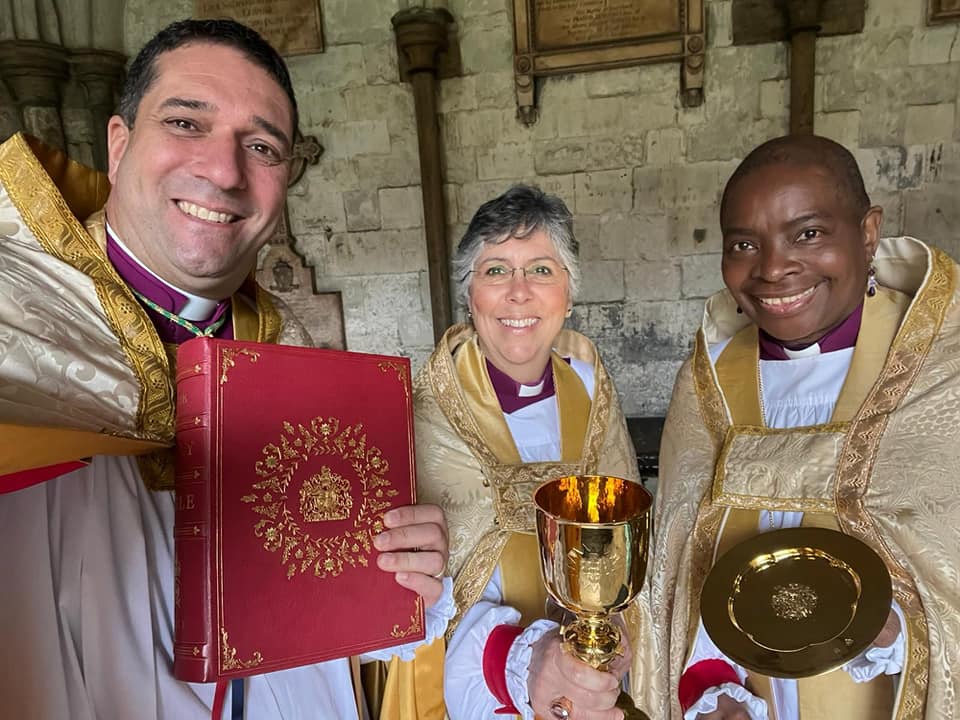Called to Serve
Extract from the Anglican Communion News Service report on the coronation.
 "The Anglican Archbishop in Jerusalem joined Anglican primates from every corner of the British Isles on Saturday for the coronation of His Majesty King Charles III at Westminster Abbey. Nine bishops from the Church of England also took part in the liturgy, which was described by a spokesman for Lambeth Palace as “a Christian act of worship that honours the ancient tradition of anointing and crowning Monarchs.
"The Anglican Archbishop in Jerusalem joined Anglican primates from every corner of the British Isles on Saturday for the coronation of His Majesty King Charles III at Westminster Abbey. Nine bishops from the Church of England also took part in the liturgy, which was described by a spokesman for Lambeth Palace as “a Christian act of worship that honours the ancient tradition of anointing and crowning Monarchs.
The Archbishop of Canterbury, Justin Welby, led the service, which was set in the context of a Eucharist. In his sermon, which reflected the theme “Called to Serve” he said
We are here to crown a King, and we crown a King to serve
Archbishop Justin
The Anglican Archbishop in Jerusalem, the Most Revd Dr Hosam Naoum, presented the chrism oil for anointing to Archbishop Justin. The oil was made from olives taken from trees growing in two monasteries on the Mount of Olives in Jerusalem. The oil was blended and co-consecrated by the Patriarch of Jerusalem, His Beatitude Theophilus III and Archbishop Hosam.
The King was anointed on his head, hands and breast in a sacred moment shielded from public view. "
The Full ACNS Article is available here on their website
Archbishop Hosam Naoum Participates in King Charles III Coronation Ceremony at Westminster Abbey in London
Extract taken from the Diocese of Jerusalem report on the coronation.
 "Archbishop Naoum processed into the service holding the Holy Bible, and before the Coronation he presented the Holy Oil to Archbishop Welby to anoint the King during the prayers of consecration and blessings. The anointing with the Holy Oil is the most sacred part of the Coronation Ceremony.
"Archbishop Naoum processed into the service holding the Holy Bible, and before the Coronation he presented the Holy Oil to Archbishop Welby to anoint the King during the prayers of consecration and blessings. The anointing with the Holy Oil is the most sacred part of the Coronation Ceremony.
The Oil was previously consecrated by Patriarch Theophilos III, the Patriarch of the Holy City, and Archbishop Hosam Naoum in the Holy Sepulchre, and was prepared from olive oil from the fields of the Mount of Olives in Jerusalem, from the Monastery of Ascension and the Monastery of Saint Mary Magdalene, which has a special connection with the Royal Family, where King Charles III’s paternal grandmother, Princess Alice of Greece, is buried.
The Oil was perfumed with rose, jasmine, cinnamon, sesame, orange blossom, cloves, and amber. This recipe is based on the one used to bless the late Queen Elizabeth II, as well as Kings and Queens of Britain for hundreds of years.
Archbishop Naoum processed into the service holding the Holy Bible, and before the Coronation he presented the Holy Oil to Archbishop Welby to anoint the King during the prayers of consecration and blessings. The anointing with the Holy Oil is the most sacred part of the Coronation Ceremony.
The Oil was previously consecrated by Patriarch Theophilos III, the Patriarch of the Holy City, and Archbishop Hosam Naoum in the Holy Sepulchre, and was prepared from olive oil from the fields of the Mount of Olives in Jerusalem, from the Monastery of Ascension and the Monastery of Saint Mary Magdalene, which has a special connection with the Royal Family, where King Charles III’s paternal grandmother, Princess Alice of Greece, is buried.
The Oil was perfumed with rose, jasmine, cinnamon, sesame, orange blossom, cloves, and amber. This recipe is based on the one used to bless the late Queen Elizabeth II, as well as Kings and Queens of Britain for hundreds of years."
The Full Article is available here on the Diocese of Jerusalem website
Oil: a reflection from the Canon Theologian
Extract taken from the article written originally for the Diocese of Cyprus and the Gulf website by John Holdsworth
"The symbolic importance of oil is of general interest at the moment as the blessing of the Coronation oil in Jerusalem has been widely reported. In the Coronation service itself, the anointing with oil is perhaps the most profound moment in the whole occasion. It is not officially a sacrament, but it certainly ticks sacramental boxes. Without it, this might be simply a ceremony to mark the start of a new job. The anointing is meant to signify that it has a greater significance."
The Full Article is available here on the Diocese of Cyprs and the Gulf website
